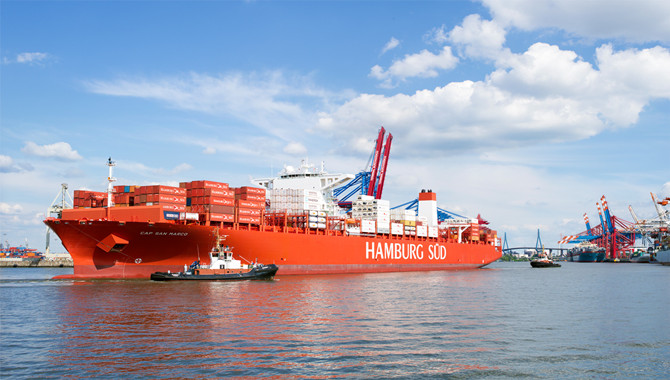
IN a recent notice, the U.S. Coast Guard again warns of the importance of maintaining your guard on cyber security, on land and at sea.
In February 2019, a deep draft vessel on an international voyage bound for the Port of New York and New Jersey reported that they were experiencing a significant cyber incident impacting their shipboard network. An interagency team of cyber experts, led by the Coast Guard, responded and conducted an analysis of the vessel’s network and essential control systems. The team concluded that although the malware significantly degraded the functionality of the onboard computer system, essential vessel control systems had not been impacted. Nevertheless, the interagency response found that the vessel was operating without effective cyber security measures in place, exposing critical vessel control systems to significant vulnerabilities.
Prior to the incident, the security risk presented by the shipboard network was well known among the crew. Although most crewmembers didn’t use onboard computers to check personal email, make online purchases or check their bank accounts, the same shipboard network was used for official business – to update electronic charts, manage cargo data and communicate with shore-side facilities, pilots, agents, and the Coast Guard.
It is unknown whether this vessel is representative of the current state of cybersecurity aboard deep draft vessels. However, with engines that are controlled by mouse clicks, and growing reliance on electronic charting and navigation systems, protecting these systems with proper cybersecurity measures is as essential as controlling physical access to the ship or performing routine maintenance on traditional machinery. It is imperative that the maritime community adapt to changing technologies and the changing threat landscape by recognizing the need for and implementing basic cyber hygiene measures.
In order to improve the resilience of vessels and facilities, and to protect the safety of the waterways in which they operate, the U.S. Coast Guard strongly recommends that vessel and facility owners, operators and other responsible parties take the following basic measures to improve their cyber security:
• Segment Networks. “Flat” networks allow an adversary to easily maneuver to any system connected to that network. Segment your networks into “subnetworks” to make it harder for an adversary to gain access to essential systems and equipment.
• Per-user Profiles & Passwords. Eliminate the use of generic log-in credentials for multiple personnel. Create network profiles for each employee. Require employees to enter a password and/or insert an ID card to log on to onboard equipment. Limit access/privileges to only those levels necessary to allow each user to do his or her job. Administrator accounts should be used sparingly and only when necessary.
• Be Wary of External Media. This incident revealed that it is common practice for cargo data to be transferred at the pier, via USB drive. Those USB drives were routinely plugged directly into the ship’s computers without prior scanning for malware. It is critical that any external media is scanned for malware on a standalone system before being plugged into any shipboard network. Never run executable media from an untrusted source.
• Install Basic Antivirus Software. Basic cyber hygiene can stop incidents before they impact operations. Install and routinely update basic antivirus software.
• Don’t Forget to Patch. Patching is no small task, but it is the core of cyber hygiene. Vulnerabilities impacting operating systems and applications are constantly changing – patching is critical to effective cyber security.
Source:Marinelink
The opinions expressed herein are the author's and not necessarily those of The Xinde Marine News.
Please Contact Us at:
admin@xindemarine.com


 Maersk to integrate Hamburg Süd and Sealand
Maersk to integrate Hamburg Süd and Sealand  Launch of the construction of the first Ro-Ro saili
Launch of the construction of the first Ro-Ro saili  Oil tanker explosion kills at least 3 in central Th
Oil tanker explosion kills at least 3 in central Th  Wind-powered RoRo Vessel Secures €9 Million in EU
Wind-powered RoRo Vessel Secures €9 Million in EU  London plays a pivotal role as shipping seeks to re
London plays a pivotal role as shipping seeks to re  Shell unveils five energy sector trends to watch in
Shell unveils five energy sector trends to watch in